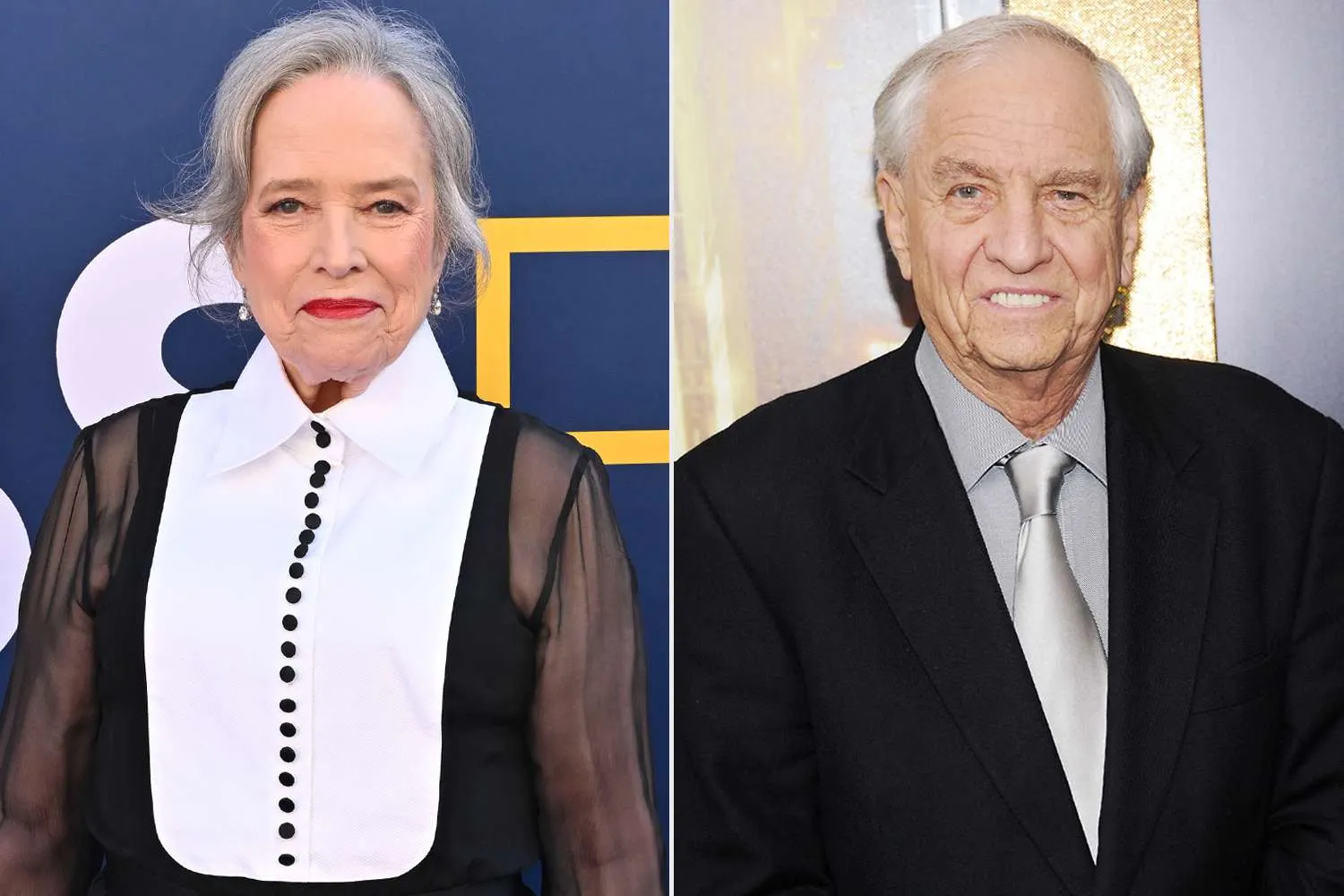Kathy Bates is no stranger to the relentless pressures that Hollywood exerts on its stars, particularly female ones. In her latest revelations, she opened up about two notable experiences that highlight how her appearance—and others’ perceptions of it—has influenced her career choices and opportunities in the film industry. Bates shared her experiences candidly, shedding light on the troubling reality of beauty standards that still persist today.
During an interview that captured audience attention, Bates recounted an incident involving the late director Garry Marshall, who was known for his work on romantic comedies such as Pretty Woman and The Princess Diaries. Bates explained that she was declined a role because Marshall believed her kissing a man in the film would not convey the romantic essence he envisioned. “I was told that my kissing a man wouldn’t be romantic enough,” Bates said. “It was disappointing, especially considering how hard I’ve worked to establish myself in this industry.” As a consummate actress who has delivered powerful performances in various roles, the implication that her looks would overshadow her craft was both hurtful and a frustrating example of how women are often judged more severely on appearance than men.
But it wasn’t just Marshall’s reluctance that stood in her way; Bates shared another story about losing a role she had originally crafted onstage. This time, it was a part that eventually went to Michelle Pfeiffer, and once again, looks played a pivotal role in the casting decision. Bates had brought the character to life in an acclaimed stage production, but when it transitioned to the big screen, it was decided that Pfeiffer would be a more commercially viable choice. “I had done the part justice on stage, but Hollywood doesn’t always see past the surface. It’s like a double-edged sword; I opened the door, but someone else walked through it,” Bates reflected.
These experiences are not simply anecdotes for Bates; they are a representation of a broader systemic issue within Hollywood that often compromises artistic integrity in favor of commercial beauty standards. Despite winning an Academy Award for her breakthrough role in Misery and earning countless accolades throughout her career, Bates remains acutely aware of the superficial metrics by which many in the industry are judged.
Moreover, Bates’ insights resonate with a growing movement within Hollywood to break down these rigid standards of beauty. The rise of body positivity campaigns and increasing diversity in casting are beginning to challenge outdated notions that have for too long dictated who gets to be seen as leading ladies in Hollywood. “We need to see more faces that aren’t just the classic beauty; it’s imperative for the next generation of actors and actresses. They should understand that talent isn’t confined to a mold,” Bates asserted.
Kathy Bates’ experience reflects the often harsh and narrow ideals with which women in the film industry are confronted. It stands as a testament to the various barriers that many actresses must navigate, particularly those who don’t fit the conventional beauty standards. Such stories shed light on the fact that talent and skill alone aren’t always enough to ensure success.
This conversation is part of a larger movement advocating for inclusivity and realism in the stories Hollywood chooses to tell. The industry is gradually evolving, but there’s still much ground to cover. Interestingly, Bates has consistently chosen to embrace her individuality throughout her illustrious career, never feeling the need to conform to those ideals that have kept many gifted actresses sidelined.
Bates’ remarks raise important questions about societal expectations and the entertainment industry’s role in shaping these ideals. Why should an actress’s ability to convey romance be tied to her physical appearance? Why do we still uphold these archaic notions of beauty? Bates’ stories challenge us to rethink our own perceptions of beauty and talent.
As the industry advances, it’s evident that there are broader implications for both women and men in film and television. The conversation surrounding representation is shifting; more filmmakers are taking risks in casting and storytelling, allowing for a fuller exploration of the human experience, which is not always limited to the superficial. We must also celebrate stories that showcase diverse representations on screen as healthy and compelling.
It’s vital to recognize and support actresses like Kathy Bates, who are willing to speak out against the systemic biases that have long plagued the industry. They pave the way for future generations to aspire without the constraints of outdated beauty standards. Such conversations spur the much-needed evolution of an industry that can often feel resistant to change.
In reflecting on her time in Hollywood, Bates has demonstrated that authenticity holds immense power. Speaking out about her experiences emboldens others to share their stories, helping to create a culture where talent can shine minus the overshadowing effects of imposed beauty norms.
Bates’ dedication to her craft transcends the banal expectations placed upon women in Hollywood. As she continues to resonate with audiences through her roles, she serves as an enduring reminder that talent, resilience, and self-acceptance are attributes worth celebrating and elevating.
As we continue to champion inclusivity in entertainment, it is essential that we listen to voices like Bates’ who have endured the trials of Hollywood while wielding the courage to challenge its status quo. Each story shared, each truth told, becomes a step towards dismantling an industry that has constrained so many talented individuals for far too long. While Hollywood has changed, the desire for authenticity must prevail, encouraging future artists to embrace individuality over adherence to fleeting beauty standards.
Kathy Bates’ reflections are not just a profile of her career; they are a call to action for change and recognition of diverse stories. In the grand narrative of Hollywood’s evolution, her voice is one that must be heeded as we work towards creating an inclusive environment where all artists can thrive.







